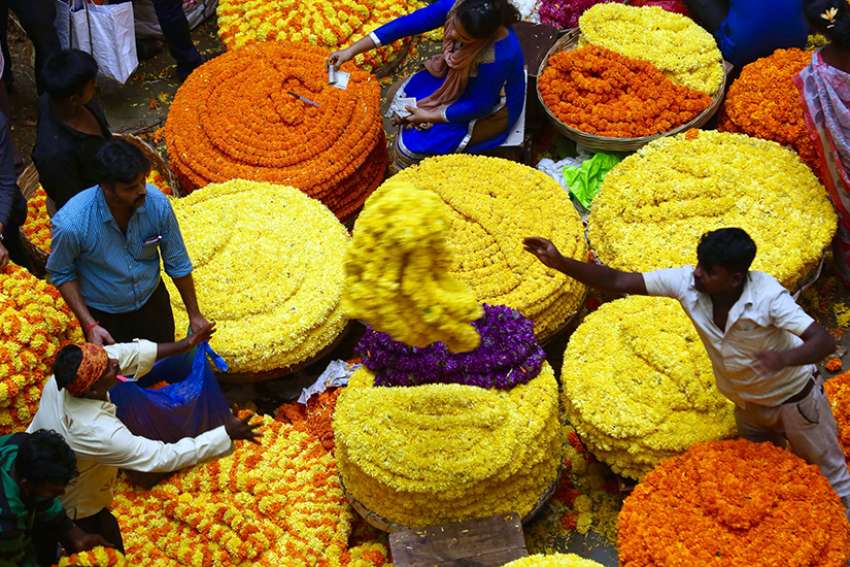We’re always so busy, we don’t take time often enough to pause and appreciate all that we have. The very fact that we live and breathe, can think and plan, walk and talk, grow families, build homes, have work — all the normal things of life — we take for granted.
There are untold numbers of people who do not have these “normal” things; their whole existence is one long struggle.
Growing up in India I daily saw hordes of beggars, ill fed and barely clothed, hordes of people including lepers and others with hideous diseases who came to my doctor father’s clinic, and hordes of bony little children working when they should have been in school. Or playing. But I never thought too much about it.
That’s just the way things were. I took for granted that I had a home, a family, friends, school, the basic necessities of life — and more. My needs, and many of my wants, were supplied with little or no effort on my part. Life was good.
I noticed a little man one day, standing on the sidewalk. It was at the corner of a busy intersection, just outside the India Arts and Crafts Emporium on one of Bangalore’s busiest streets where all the big shops were. And the cinemas. And the India Coffee House where half a rupee could buy you a tall glass of iced coffee with a great blob of ice cream floating on top.
The man was really little, much shorter than eight-year-old me; his colour that of a well roasted coffee bean. He wore a white shirt, a white loincloth and a smile. Bare footed, he stood as erect as his humped back would allow, one arm permanently outstretched, palm uppermost. Shoppers thronged in and out through the great glass doors of the emporium.
The British were there, buying silk and sandalwood and ivory. Indians, silk saris swishing, glass bangles jangling, buying brass. Big brass trays, brass tigers, brass elephants, brass Krishnas. Now and then someone might cast a pitying glance on the little man. A coin would gleam in the waiting palm.
The little man would salaam profusely, the smile widen, the coin vanish mysteriously into the folds of his loincloth. Occasionally I would have a coin for him. Sadly, not often; those were my young, unthinking days.
Years passed. I grew up, the little man stayed, unchanged, hump-backed, mute, seemingly glued in place. He never moved from that spot; he was as much a part of the scene as the dust and the great red splodges of betel-nut juice splattered on the sidewalk. And the vendors of green mangoes in glass carts, and the man with cages full of little birds with cramped wings, squawking piteously. I sometimes wondered vaguely whether he stood there all night.
In my teens, I left home, went abroad to study and “seek my fortune.” Eight long years passed before I had the chance to go home to my family. Out shopping one day, I headed for the Emporium. Much had changed, although there was much that was still the same. Everywhere seemed more crowded, noisier. Dustier. Beggars were more numerous. Green mango sellers were still there. And little caged birds, still with cramped wings, imploring freedom.
Instinctively, my eyes went to the corner. There stood the little man. The same white shirt and loincloth. The same hopeful smile and hopeful palm. At the sight of him, my heart stood still and I wanted to weep. All these years! I thought. All. These. Years.
I have travelled, I’ve studied, worked, earned a degree in nursing. I have a husband and kids. A nice home and a garden and a noisy green parrot. I’ve seen and done so much. I have so much. And all this time, while I’ve been busy seeing and doing and having, enjoying life, this little man has just been standing on the corner.
I don’t know what became of that little man; that was the last time I ever saw him. But I’ve never forgotten him. In my mind’s eye, he stands there still, waiting patiently. Expecting so little from life. Receiving so little.
He will be forever a reminder to me to stop taking all the good things in life for granted; to truly appreciate all that I have. And for all I’ve been given, to give heartfelt thanks to the Lord.
(Saldanha is a freelance writer who lives in Ramara, Ont.)
Comment: Take nothing for granted, give thanks for all things
By GUEST COLUMN, Angela SaldanhaWe’re all guilty to some degree, aren’t we? I mean, guilty of taking things for granted.
Please support The Catholic Register
Unlike many media companies, The Catholic Register has never charged readers for access to the news and information on our website. We want to keep our award-winning journalism as widely available as possible. But we need your help.
For more than 125 years, The Register has been a trusted source of faith-based journalism. By making even a small donation you help ensure our future as an important voice in the Catholic Church. If you support the mission of Catholic journalism, please donate today. Thank you.
DONATE

